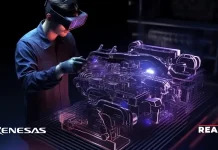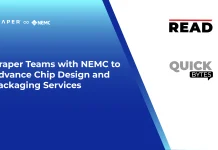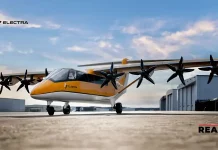Evolution Space, a Mojave, Calif-based launch provider, announced the successful qualification fire campaign of its next-generation spaceloft motor on Saturday, October 29 at 1:56pm pst at the company’s test site outside Ridgecrest, CA. Designed as an improved propulsion system for Evolution’s first commercially produced space vehicle, the motor produced a peak thrust of 20,000 pounds with a 15-second burn time and a maximum chamber pressure of 1,630psi. The motor outperformed the company’s most optimistic ballistic simulation model by 3%, providing additional margin on the mission goal of lofting the company’s space vehicle to an altitude of ~110km. Steve Heller, Founder & CEO of Evolution Space, says several new technologies were validated: “I’m thrilled with the performance of the new designs we tested, all of which functioned nominally: a frangible starter motor, a new propellant designed to deliver significantly longer burn times in similar form factors and at similar chamber pressures, a new thermal insulation system, and an improved ablative nozzle. Our ongoing efforts to derisk and optimize our propulsion technology are ahead of schedule, allowing us to put several vehicles in space within the next year.” Heller added the company continues to meet production and development deadlines, corporate goals that eludes many space startups, including early Evolution missions. “This is the third test in a row we’ve conducted on-time and under budget,” he said. “I couldn’t be more proud of our team. Execution has been emphasized this last year, and this firing is another example of those efforts paying off operationally – in addition to engineering.”
Also Read: Doc Popcorn Releases New Sugar ‘N Spice Flavor Ahead of Holiday Season
Evolution also tested its new purpose-built data acquisition system, developed in-house as part of a larger database campaign for defense customers. Chamber pressure, thermal imaging, and X/Y axis thrust were measured by redundant sensors, and closely matched anticipated simulation. The motor was specifically designed to deliver a boost-sustain thrust curve, allowing the rocket to reach an appropriate spin rate quickly before settling into a flat, lower-thrust mode for the remaining burn. This provides for a lighter overall vehicle, lower aerodynamic stresses, and a higher altitude at which maximum dynamic pressure, or Max Q, is reached.
“This motor delivers the necessary impulse and an optimized thrust curve for the mission requirements our customer has in mind, and I couldn’t be more excited about the outcome of this test” said Tony Pipe, Evolution’s Chief Engineer. “This will allow us to optimize the vehicle design around a certified, derisked propulsion platform, and we’re cautiously optimistic it will put Evolution’s next vehicle into space as a result.”




